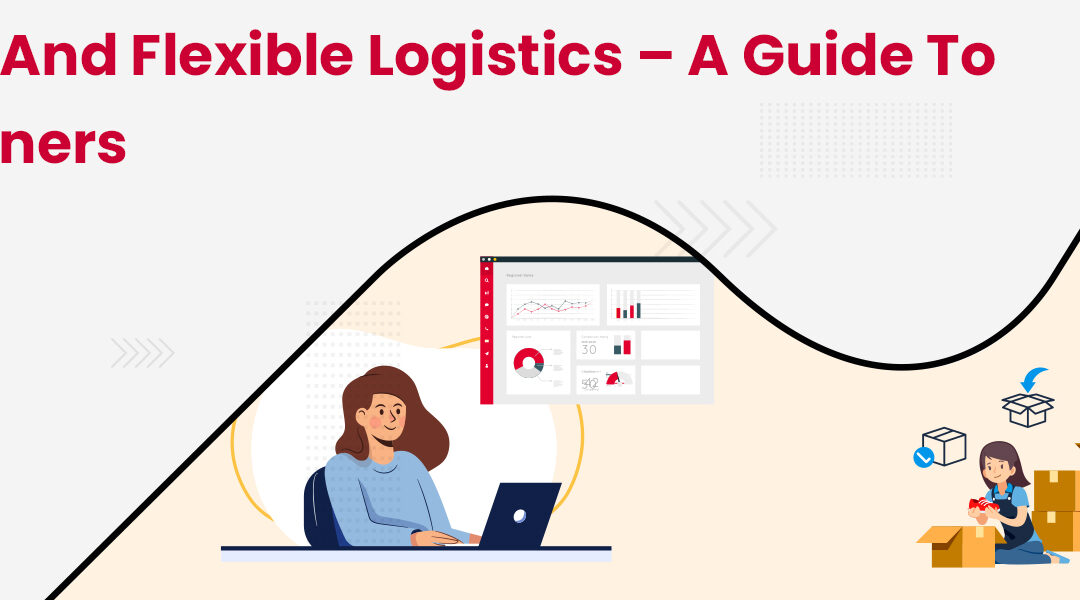The concept of logistics is as old as human society and trade itself. Logistics has been the critical factor in the development of civilization from simple bartering to advanced market economies and has been a vital part of all businesses since their inception.
In the last century, flexible and fixed logistics concepts have emerged as methods used by large and small companies to streamline their logistics processes. Today both have become the two different systems to complete shipments. Still, each has its own set of advantages and disadvantages that need to be considered before deciding on which method to use.
So, how can you figure out what type of logistics management fits your business? This guide will help you figure out the difference between fixed and flexible logistics, and how to decide which one best fits your company’s needs as it grows.
Now, let’s get started and know the right choice for you.
What is Fixed Logistics?
The logistics process of fixed logistics is where the supplier, customer, and product are known in advance. This type of logistics uses long-term forecasting to determine what resources need to be acquired for each shipment and make arrangements in advance with all involved parties to ensure that planning requirements are met.
An example of fixed logistics would be when a company makes a large order from a supplier that will require them to pay for a year’s worth of delivery upfront. The supplier ships the product directly to their customer. In this logistics system, it is beneficial for all parties involved to have a clear calendar of logistics events and for there to be long-term communication between all involved parties in the preparation of logistics events.
Fixed logistics are best for large-scale businesses such as heavy cargo shipping and logistics for industrial or commercial projects. It is not particularly suited for small, non-resource intensive logistics such as sending a text message or placing an order on an e commerce site.
Vital Stats of Fixed Logistics:
- 90% of logistics companies follow fixed logistics strategies
- 75% of logistics companies only use one logistics strategy
- 51% tend to move toward fixed logistics
Pros of Fixed Logistics:
- Decreased logistics time
- Greater control over logistics
- Better prediction of logistics costs
- Easier logistics planning
- Increased logistics collaboration
Cons of Fixed Logistics:
- Longer logistics preparation time
- The large investment required for an initial logistics event
Top Companies Using Fixed Logistics
- Walmart
- com
- IKEA
- Apple Inc.
- GameStop Corp.
- PalletOne
What is Flexible Logistics?
Flexible logistics is a process where the supplier, customer, and product are not known in advance. This type of logistics uses real-time logistics forecasting to determine when and what resources need to be acquired for each shipment. It then makes arrangements with logistics partners in real-time to ensure that logistics requirements can be met.
An example of flexible logistics would be when a company places an order for delivery with a logistics provider. The logistics provider uses real-time logistics forecasting to determine how much and what type of resources will be needed. They then ship the product directly to the customer and handle all logistics in real-time, deducting payment from their client’s account as required.
This logistics process is more suited to small logistics. It is the most commonly used logistics system for logistics in sales, marketing, and logistics management due to its ease of use.
Vital Stats of Flexible Logistics:
- 93% of logistics companies follow flexible logistics strategies
- 79% of logistics companies use both flex and fixed logistics strategies
- 57% tend to more toward flexible logistics
Pros of Flexible Logistics:
- Easy logistics planning
- Decreased logistics time
- Greater logistics collaboration with suppliers and customers
- Better logistics projections for future logistics events
Cons of Flexible Logistics:
- Less control over logistics
- Fewer logistics collaboration
- Inaccurate logistics forecasting
Top Companies using Flexible Logistics:
- Amazon logistics
- FedEx logistics
- UPS logistics
- Apple logistics
- Microsoft logistics
Fixed or Flexible Logistics – Which logistics method is better?
Many logistics 101 professionals are faced with the logistics method they should be using when they hold logistics management responsibility. Both logistics methods have pros and cons, but you should be using flexible logistics in most cases.
Fixed logistics is best suited to large, resource-intensive logistics such as heavy cargo shipping and logistics for industrial or commercial projects. It is not very suited for logistics systems in sales, marketing, and logistics management.
Whereas flexible logistics is best suited to logistics systems in sales, marketing, and logistics management. It is not well-suited for logistics systems involving large, resource-intensive logistics such as heavy cargo shipping and logistics for industrial or commercial projects.
In short, flexible logistics allows you to take advantage of all the benefits that a logistics system can offer with its ease of logistics planning and logistics forecasting. You can use it for logistics management, logistics in sales, logistics in marketing, or to handle a single logistics event.
So, what logistics method should you use for your logistics system?
- If it’s logistics management, logistics planning, logistics in sales, logistics in marketing, or a single logistics event – choose flexible logistics.
- If it’s large logistics events with resource-intensive logistics – fixed logistics will be the most suitable choice.
Conclusion
It is important not to rely on logistics forecasts and planning simply; logistics forecasting and logistics planning should be used as aids throughout the logistics process. It is never a good idea for logistics management professionals to make decisions based solely on logistics data and forecasts, even though they are beneficial for logistics planning and forecasting.
Many companies integrate logistics management with logistics forecasting, logistics planning, logistics execution, logistics reporting, logistics process automation systems, etc. It enables companies to make the most of their logistics management system and provides logistics 101 professionals with the necessary tools to ensure that company logistics objectives are met.




